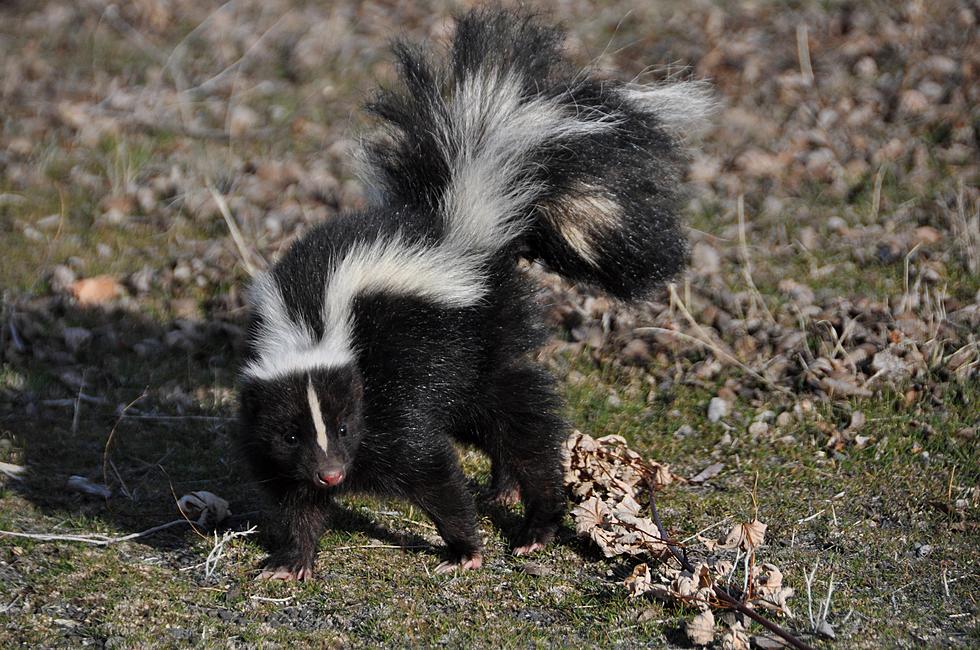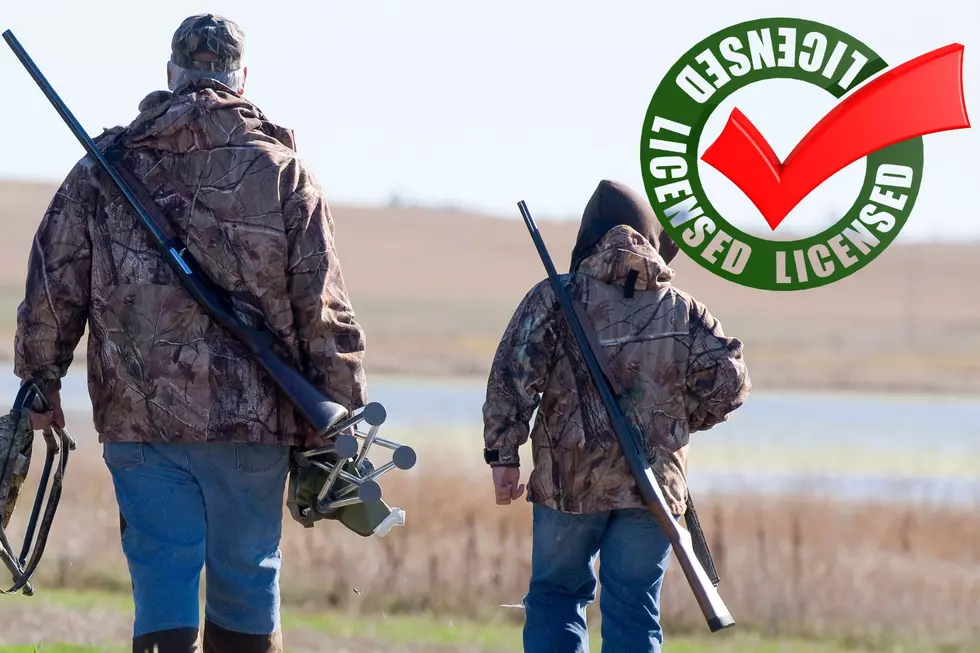
Iowa, You Might Have a Skunk Problem if Your Yard Looks Like This
While skunks are not nearly as big of a nuisance in the winter months as in the summer months, if you noticed your yard was starting to look like this last summer/fall, it's possible you had a skunk problem. If you didn't experience this last summer/fall, at least you'll know what the possible problem is if you ever do notice a change like this to your yard.
For now, you can rest easy worrying about these little creatures. According to Spectrum News, skunks do not fully hibernate in the winter. They enter a state of "torpor." This is the state of "decreased physiological activity in animals, which reduces the body temperature and metabolic rate." During the cooler months, skunks normally stay huddled in their dens and become relatively inactive, eat very little, and sleep a lot.
The breeding season for skunks is in February and March. Now that January is here and skunks will become more active in the next few months, you may want to keep an eye out if your yard begins to look like this.
Skunk Holes
If you begin to notice holes like this in your yard, it's possible you either have a raccoon or skunk digging for grubs, worms, and other insects, according to Iowa State University.
The damage to your yard normally happens overnight as both skunks and raccoons are nocturnal creatures. After digging for a quick meal, skunks can leave behind a pretty torn-up mess on your lawn. These holes are created by skunks pushing their noses into the lawn and then using their front paws to dig out small chunks of grass/dirt.
Management
If you've noticed a possible skunk has infiltrated your yard and you're not a fan of what it's doing to your lawn, I would call for professional help. Management of this damage can be very difficult, according to Iowa State University. A professional will know what is legal in your area and the best options for you. If you'd like to try and manage the situation yourself, here are a few possible solutions, according to ISU.
Grub Control - Take an assessment of the number of white grubs in the soil. Inspect nearby undamaged areas or areas that have shown grubs in the past. If the grub numbers are low, no treatment is necessary. If the grub numbers are high, you can apply an insecticide to kill grubs currently in the soil. This solution is most effective in August and early September.
Exclusion - The most effective management option for skunk and/or raccoon damage is, simply, excluding them from certain areas. Sturdy chicken wire fencing, a woven wire fence, or a fully built fence can prevent skunks from reaching areas they are prone to eating. Skunks do not jump or climb so this could be the best solution for you.
Scent Repellents - Repellents that use strong scents to discourage wildlife pests from entering your yard could be the easiest solution for you if you'd prefer to not build some type of fence. These will need to be reapplied often, especially after rain. Iowa State University does mention that these are typically not effective in preventing additional damage to your yard.
Fixing the Damage
Preventing damage to your lawn can be a difficult process and if you would like to repair your lawn, get out the work gloves and a shovel. You can replace the pulled-up grass and irrigate the loose pieces so they become re-established. Overseed to fill in the gaps or put up entire sections and start over by reseeding/sodding.
Iowa's State Record Fish
Gallery Credit: Iowa Department of Natural Resources
Eight Iowa Animals That Are Threatened or Endangered
Gallery Credit: Getty Images/Unsplash/YouTube
More From K92.3


![Every Iowan Can Recognize These 4 Comfort Foods [PHOTOS]](http://townsquare.media/site/726/files/2024/05/attachment-Untitled-design-2024-05-02T110610.251.jpg?w=980&q=75)
![Iowa State Cyclones Unveil New Uniforms for This Season! [PHOTOS]](http://townsquare.media/site/726/files/2024/05/attachment-GettyImages-1893170441.jpg?w=980&q=75)





